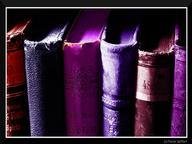Quiz Answer Key and Fun Facts
1. Three of these aphorisms are from Rumi, but one is not. Which is the odd line out?
2. Rumi developed such a close friendship with a particular whirling dervish that he named his collection of odes and quatrains "The Works of _____". What name is missing from this title?
3. "Not Christian or Jew or _____, not Hindu, / Buddhist, sufi, or zen." What word is missing from this line of Rumi's?
4. Rumi writes that what instrument, ever since it was taken from its natural source, has made a crying sound?
5. What kind of thirsty animal does the poet Rumi have in him "that can never find enough of what it is thirsty for"?
6. Rumi advises his readers to be like what Biblical character and "start a huge, foolish project"?
7. "To an ____, the Nile looks bloody. / To an Israelite, clear." What word is missing from this blank?
8. "The same wind that ____ the trees / makes the grasses shine." What word is missing from this line?
9. "____ is the language of God, / all else is poor translation." What is the language of God?
10. A poem by Rumi tells of some Hindus walking into a dark room. One by one, they feel an animal, but they each describe it very differently. What is the animal?
11. Which of these aphorisms is NOT from Rumi?
12. In a poem by Rumi, what wise Biblical figure do the gnats appear before to issue a complaint against the wind?
13. According to a poem by Rumi, what, "more than anything," "blocks the workmanship"?
14. Three of these sayings are from Rumi, but which is, instead, from the Book of Proverbs?
15. Three of these sayings were generated by InspiroBot. Only one comes from the pen of Rumi. Which one?
Source: Author
skylarb
This quiz was reviewed by FunTrivia editor
looney_tunes before going online.
Any errors found in FunTrivia content are routinely corrected through our feedback system.
